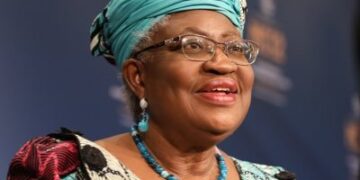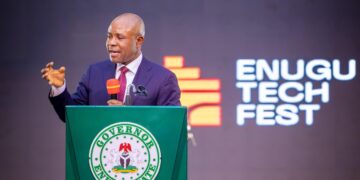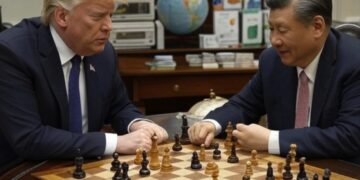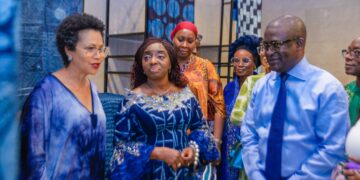The Obidient Movement, ignited in mid-2022 as a grassroots wave supporting Peter Obi’s presidential candidacy under the Labour Party, was a bold response to Nigeria’s broken political system. Born from the ashes of the #EndSARS protests, it mobilized millions of young Nigerians—71% of new voter registrants aged 18-34, per the Independent National Electoral Commission (INEC)—with a vision of a “New Nigeria” built on competence, frugality, and equity. Obi’s mantra, “consumption must be less than production,” struck a chord amid rampant inflation, 40% extreme poverty, and pervasive insecurity. Yet, the movement’s singular focus on electing one man in 2023 overlooked a greater calling: to cultivate a generation of *Peter Obis*—leaders embodying his principles—across Nigeria’s judiciary, civil service, military, police, legislature, and private sectors. This article reimagines the Obidient Movement as a leadership incubator, not just a vehicle for one election but a transformative force to fix Nigeria’s systems.
The Vision: A Nation of Obis, Not One Obi
Peter Obi, former Anambra governor, galvanized a generation with his record of fiscal discipline and rejection of Nigeria’s patronage-driven “stomach infrastructure” politics. The movement’s decentralized, youth-led energy, amplified by hashtags like #Obidient on Twitter (now X) and WhatsApp campaigns, saw 72% of decided voters backing Obi in a 2022 Bloomberg poll. It wasn’t just a campaign; it was a rebellion against a system where elites thrive while 133 million Nigerians languish in multidimensional poverty.
But crowning one president, even an Obi, cannot dismantle Nigeria’s entrenched rot—corrupt courts, inefficient bureaucracies, underfunded security forces, and self-serving lawmakers. The real revolution lies in raising thousands of Obis: judges who uphold justice, civil servants who prioritize efficiency, soldiers and police who protect rather than oppress, legislators who serve the public, and entrepreneurs who create jobs. This vision transforms the Obidient Movement from a 2023 electoral sprint into a decades-long project of systemic renewal.
The Misstep: A Movement Built on Sand
The movement’s initial setup, while electrifying, was flawed. It leaned heavily on Obi’s charisma—his “go and verify” catchphrase and frugal persona—over a robust ideology. The Labour Party’s platform was thin on specifics for systemic reform, focusing on Obi’s personal appeal rather than institutional change. As one X post put it, “Obidient movement was founded because of one Man ‘Peter Obi’ forget all this principles of yada yada.” This cult of personality left it fragile, splintering post-2023 into factions like “Obidients for APC” or “Obidients for PDP,” with no lasting structure.
Ethnic undertones further undermined its “beyond tribe” rhetoric. Predominantly Igbo in optics, the movement faced accusations of pushing a Zikist agenda, alienating allies in the Southwest and North. Toxic online rhetoric, often from bot accounts or clout-chasers, fueled anti-Yoruba slurs, with some posts decrying “Bini Nationalists” for “spewing hate against the Yoruba people.” The digital hype—memes over policy, outrage over coalitions—failed to translate offline. By September 2025, with Labour Party infighting and Obi’s flirtations with fringe alliances like the AAC, the movement teeters on irrelevance, its youth energy wasted on a single election cycle.
Reimagining the Obidient Movement: A Leadership Incubator
To redeem its promise, the Obidient Movement must become a factory for principled leaders across Nigeria’s institutions. Here’s how it can nurture a generation of Obis:
1. Judiciary: Incorruptible Judges
Nigeria’s judiciary, riddled with bribe-taking and political bias, undermines justice. Obi-inspired judges—guided by integrity and evidence—could transform it. The movement could launch legal fellowships, partnering with the Nigerian Bar Association to train young lawyers in ethics and case management. Mentorship programs and anti-corruption workshops could prepare a cadre of judges to deliver impartial rulings, ensuring cases like the 2023 election petitions reflect law, not influence.
2. Civil Service: Efficient Technocrats
The civil service, bloated and lethargic, stalls Nigeria’s progress. Obi’s Anambra record—governing without loans—offers a blueprint for efficiency. The movement could sponsor scholarships for young technocrats, emphasizing data-driven governance and transparency. Training programs, in collaboration with universities and NGOs, could produce civil servants who digitize processes, cut waste, and prioritize citizens, replacing red tape with results.
3. Security Forces: Professional Protectors
Insecurity—Boko Haram, banditry, kidnapping—persists partly due to underfunded, demoralized security forces. Obi-inspired soldiers and police would prioritize professionalism and public safety. The movement could advocate for better training, welfare, and accountability, while promoting community policing to rebuild trust. Youth recruitment drives could attract principled candidates, fostering a security sector that serves, not subjugates.
4. Legislature: People-Centered Lawmakers
The National Assembly, notorious for bloated budgets and self-interest, needs lawmakers who embody Obi’s modesty and public focus. The movement could train young candidates for local and state assemblies, equipping them with policy expertise and anti-corruption tools. Grassroots campaigns, funded by small donations as in 2022, could support these “mini-Obis” to challenge godfatherism, building a pipeline to national leadership.
5. Private Sector and Civil Society: Innovators and Advocates
With 50% youth unemployment, Nigeria’s private sector needs Obi’s “production over consumption” ethos. The movement could establish entrepreneurship hubs, teaching young Nigerians to create jobs. Meanwhile, civil society leaders—think tank researchers, NGO heads—could amplify Obi’s equity vision, advocating for policies like universal education or healthcare. These sectors, often overlooked, are vital to systemic change.
Building the Pipeline: Practical Steps
To groom these new Obis, the movement must evolve into a structured, ideology-driven platform:
Leadership Academies: Launch Obidient Leadership Institutes, offering courses on governance, ethics, and policy. Partner with groups like YIAGA Africa to train 1,000 youths annually.
Mentorship Networks: Connect young professionals with mentors like Obi, using virtual platforms to scale nationwide.
Policy Think Tanks: Create research units to develop sector-specific blueprints, grounding the movement in actionable ideas.
Community Engagement: Shift from social media to town halls and cooperatives, embedding Obi’s principles in local governance. This avoids the 2023 pitfall where digital hype outran real-world impact.
Anti-Tribal Focus: Recruit diverse leaders from all regions, countering the “Igbo agenda” narrative. A national conference could unite Hausa, Yoruba, and Igbo youths under a shared charter.
The Stakes: A Nation on the Brink
Nigeria’s challenges are dire: 133 million in multidimensional poverty, 33% unemployment, and a debt-to-GDP ratio nearing 50%. One president cannot fix this; a generation of principled leaders can. The Obidient Movement’s 2023 loss—Labour’s third-place finish—exposed the limits of electoral fixation. By 2025, with economic woes deepening under President Tinubu, the movement’s silence on issues like subsidy removal underscores its fragility. Yet, Nigeria’s youth bulge—70% under 30—remains a potent force if channeled into leadership, not fandom.
A Legacy for the Future
The Obidient Movement’s initial focus on one man and one election sparked hope but fizzled fast. Reimagined as a leadership incubator, it could forge a generation of Peter Obis—judges, civil servants, soldiers, lawmakers, and entrepreneurs—who embody his values of merit, frugality, and equity. Instead of rallying an army to crown one leader, it should raise thousands to rebuild Nigeria’s institutions. As Obi might urge, “go and verify”—not just his record, but the power of a generation to transform a nation, one principled leader at a time.




























